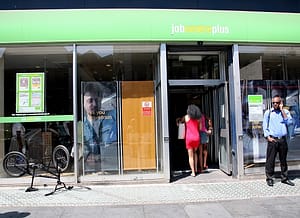The UK’s telecoms king tell us his extraordinary story.
Pat Nabhan left Sri Lanka in 1970 due to racial discrimination. As an ethnic Tamil he couldn’t get a job there. Couldn’t even get into university. So he came to the UK after leaving school, and worked his backside off.
Today Nabhan is the founder and chief executive of one the nation’s largest telecoms firms, Middlesex-based QiComm (pronounced like Stephen Fry’s show), which has annual sales of £93m, growing 35 per cent a year. He’s also an inventor, restaurateur and television moghul.
He emphasises his love and appreciation of this country. He sent his sons to St Paul’s public school and daughter to St Paul’s School for Girls, then to Oxford and the LSE. One child is a partner at Goldman Sachs. The other two hold senior jobs with his firm.
The man is a pillar of the establishment.
He is also astonishingly modest, rarely giving interviews. Which, despite his extraordinary success, is why he’s so poorly known outside the telecoms industry. To rectify, LondonlovesBusiness.com pestered him for an interview, which he granted.
Designing the world’s first modem
“I was one of the first batch of Sri Lankans to come to the UK in the Seventies,” he begins, his accent still strong despite the years. “I had done my A levels, got three ‘A’s, but couldn’t get into university. There was discrimination against Tamils.”
He took a degree in electronic engineering, and then worked for a few firms before winding up at Thorn Emi Datatech. It was there that his work ethic combined with his technical prowess became apparent. “I designed the world’s first high speed modem in 1979. It’s true! We had a joint venture with BT. We used data compression to get 32 kilobits a second. It was a breakthrough.”
Did he get a bonus for this world-changing invention? “No, no, I was part of team.” Again, too modest.
Nabhan designed modems until the late Eighties, by which time the price had fallen from £5,000 to £50. In 1989 he switched from inventor to entrepreneur.
Breaking the £100m turnover barrier
“I started a firm, United Networks, with a director from Thorn Emi to sell interface converters and other products to Cisco. The converters were made by a Finnish firm called Martis Oy. Fortunately Cisco had a problem with their routers – they weren’t suited to the UK – so they needed a lot of converters.”
QiComm’s turnover has grown by a third almost every year
Soon he was flogging all sorts of telecoms hardware to clients such as British Rail and the government. “Our big break was supplying transmission networks for 2G GSM operators. We supplied the hardware, installed it and maintained it for One2One and T-Mobile.”
In the Nineties he sold £100m worth of kit to mobile operators.
He grew by diversifying into carrier services. When India liberalised its telecoms industry, Nabhan offered call termination services in the UK for Indian telcos. Clients included Reliance, Bhati and Globacom.
It wasn’t all plain sailing. “In 2000 the telecoms bubble burst. We had cash flow problems and needed a VC to come in. A Malaysian organisation called QI invested a lot of money.”
The cash injection worked. QiComm’s turnover has grown by a third almost every year, will pass £110m this year.
Diversifying: TV and Sri Lankan food
One of Nabhan’s distinguishing features as an entrepreneur is that he is constantly looking for new revenue streams. Recently he moved QiComm into telecom products for ethnic minorities. The Dialog Vizz mobile Sim allows Sri Lankans in the UK to call home for discount prices.
“We have already penetrated a third of the UK Sri Lankan market,” says Nabhan. Other ethnic groups are now being targeted. “I’ll tell you which ones off the record!” he says (and he did – a long and impressive list).
Nabhan cheerily lists all the different areas he’s got QiComm involved in. He’s just opened a massive data centre at City Reach in Docklands. He’s providing various support services for China’s second largest telco ZTE.
And he gets really enthusiastic about his other business, his very own TV station, Deepam TV.
“In 2000 we were making a lot of money, so we thought all the Tamil people in the world needed a TV station. So we launched the first digital Tamil station called Deepam TV. It is distributed over the Hotbird satellite system, which transmits across Europe. You need a special dish, but most ethnic households have one.”
“Full taxpayer. No locating to Monaco! I believe that when you make money you have to pay back to society.”
Deepam has 25,000 paying subscribers. “About 60 per cent of the content is syndicated from other Tamil stations. We make 40 per cent of the shows ourselves in the UK. We do news, chat shows and political analysis.”
Not bad for a station with only 26 staff and £1.5m revenue. “We break even,” says Nabhan. For a man forced to leave his homeland, like so many of Deepam’s viewers, it is clearly not about the money.
Food is another love. “I opened the first Sri Lankan restaurant in London, 20 years ago. I brought chilli powder and rice from Sri Lanka. Now there are quite a few great Sri Lankan restaurants.” His favourite? “Go to Wembley. There is a chain called Sambal Express. Very nicely done. And if there’s cricket you must try the Sunrise in Sunberry. It’s a big pub where Sri Lankans locals like to to go. There is actually a big trend for Sri Lankans to buy pubs and turn them into restaurant bars. The Sunrise is the best one.”
With QiComm offices in Sri Lanka, Hong Kong and the Philippines plus deals across Asia and other continents, Nabhan spends a lot of time travelling. “I spend a week a month in the Middle East or Far East. Travel for me is a nuisance, not a luxury.”
He rarely takes holidays – “too busy” – and his work/life balance is rather skewed by the fact that his daughter is QiComm’s marketing manager and one of his sons is head of carrier services sales.
He’s got no plans to retire, and definitely no plans to relocate anywhere. “I am a full UK passport holder,” he tells me. “Full taxpayer. No locating to Monaco! I believe that when you make money you have to pay back to society.”
Safe to say he’s done that, many, many times over.





Leave a Comment